Almost any photographer will admit that they prefer the moments spent in the field with camera in hand over the hours spent behind a computer post-processing. What most folks don’t realize is that there are a number of hidden settings built into Lightroom meant to alleviate the painstaking process of culling images. Mark Wallace shares some of the essentials:
⌘ + \ Shortcut
Adobe Lightroom contains dozens of shortcuts for organizing, editing, and exporting images as well as quite a few designed to aid in navigating and displaying photos through the program itself. Keeping track of each individual shortcut is no easy task, and going through each command in an article or video would take quite a bit of time. Luckily, the ⌘ + \ shortcut serves as a bit of insurance. Applying this specific command brings up a cheat sheet of some of the most commonly used shortcuts in Lightroom. For those lacking perfect memories, this shortcut is an absolute essential.
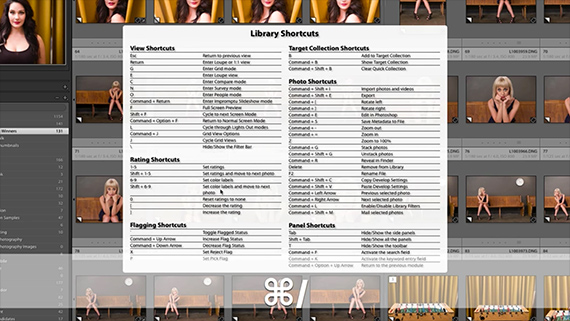
Compare Mode
Having trouble choosing a favorite photograph? The compare mode is designed to simplify the decision making process. After selecting an image from the Lightroom filmstrip, simply pressing C allows users to enter the Compare module. Here, it’s possible to look at two images side by side. On the left, the select image is pictured, and on the right is the candidate image. The goal is to run through candidates and determine whether any of them may be better shots than the current selection. Right and left arrows on the keyboard allow users to move between potential candidates. To promote a candidate to a new select, just press the “Make Select” button found at the bottom of the panel.
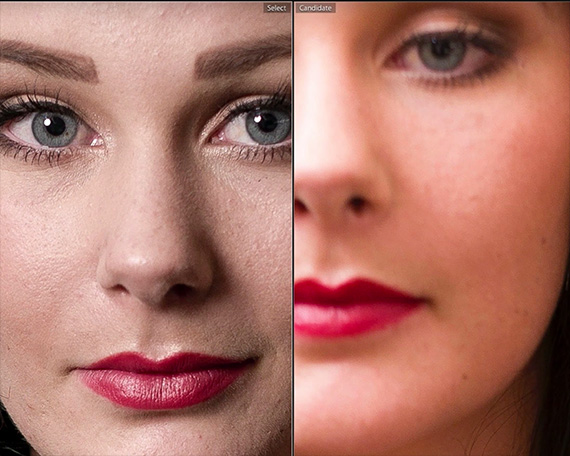
Filtering Selects
Using conventions such as flagging, star rating, and color coding is a great way to differentiate favorites when working with many images at once. At the top of the Lightroom panel, there is a tab titled Attribute. Through this tab, it’s possible to pull out images based solely on an applied marking. Labeling images is easy and intuitive. You can pick an image to flag by simple pressing P while highlighting the specific frame. Similarly, five star ratings can be applied by pressing the desired number between 1 and 5 on the keyboard while highlighting a desired image.
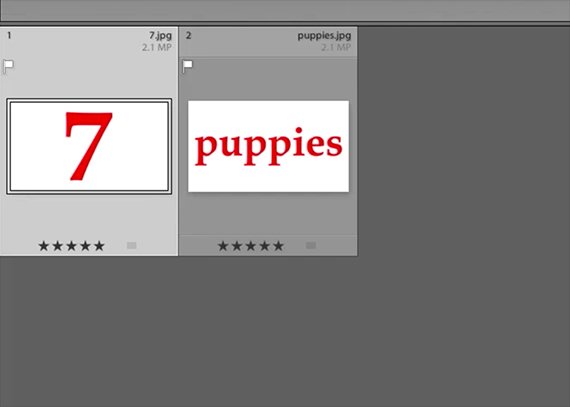
Stacking Technique
On many occasions, there may be several images that are very similar to one another in a single Lightroom catalogue. To make them a bit more manageable, it’s possible to use a technique known as stacking. Select the first image in a similar sequence. Then, hold down the Shift key while clicking on the last image in the sequence. By right-clicking, users will be able to access a stacking option that allows for grouping or collapsing a stack. A shortcut to collapse existing stacks is to highlight the stack and press down S on the keyboard. It’s possible to completely bypass the manual stacking process; under the Stacking option, there’s an additional option that allows for auto stacking based on capture time.
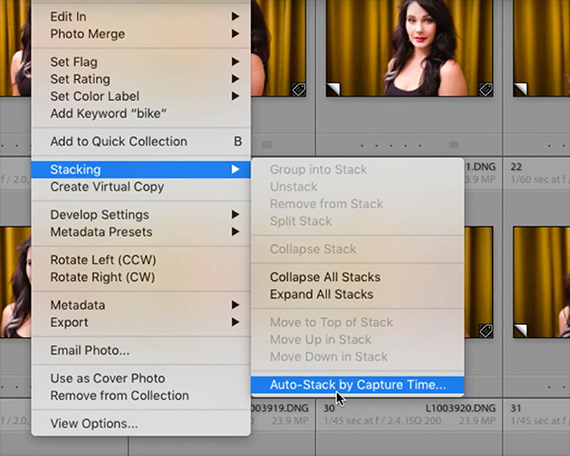
Survey Mode
The survey mode allows the user to look at a series of images in a light table view. To enter survey mode, select a desired group of photographs and press N. As opposed to compare mode, the survey mode allows photographers to pick winners through the process of elimination. In the bottom right corner of every frame is a black X. Pressing down on it automatically removes the image from view. Keep in mind that X-ing out a photograph doesn’t delete the image from your catalogue or affect the metadata of the image.
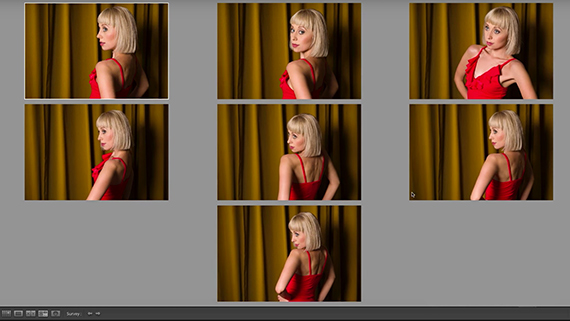
These five tools are sure-fire solutions to dramatically reduce the amount of time spent post-processing. This means that getting an image from the camera to the client’s hands is faster than it ever has been before (which equates to more time spent practicing the parts of the trade that you love most).
New product this week: The Landscape Photographer’s Lightroom Presets
Go to full article: Lightroom Shortcuts for Culling Your Photos
What are your thoughts on this article? Join the discussion on Facebook
Article from: PictureCorrect
The post Lightroom Shortcuts for Culling Your Photos appeared first on PictureCorrect.